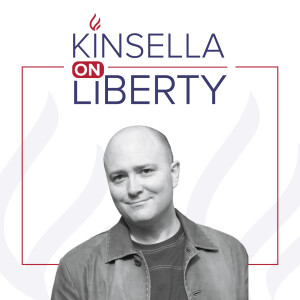
KOL190 | On Life without Patents and Copyright: Or, But Who Would Pick the Cotton? (PFS 2015)
 2015-09-15
2015-09-15
Download
Right click and do "save link as"
Kinsella on Liberty Podcast, Episode 190.
This is my talk “On Life without Patents and Copyright: Or, Who Would Pick The Cotton?”, delivered at the Property and Freedom Society, 10th Annual Meeting, Bodrum, Turkey (Sep. 13, 2015).
Video below. This version is taken from my iPhone recording. My notes used for the speech are pasted below. Also below is a video of the Q&A panel session following the talk.
Related: Do Business Without Intellectual Property (Liberty.me, 2014) (PDF).
On Life without Patents and Copyright: Or, But Who Would Pick the Cotton?
Stephan Kinsella
Kinsella Law Group, Libertarian Papers, C4SIF.org
Property and Freedom Society, 10th Annual Meeting
Bodrum, Turkey (Sep. 13, 2015)
A pleasure to be at PFS or, as I’m starting to think of it, the Land of Successive Hangovers
Hoppe: does not do interviews because he does not like to repeat himself
So I thank him for asking me to speak on intellectual property for the first time ever
My topic: What would life without IP be like?
Or: But how will people make money in an IP-free world?
Subtitle: But who would pick the cotton?
Questions about IP are often confused. There are at least three separate, though possibly related, issues:
Should we have patent and copyright law? (A political-normative question.)
Given that we do, how should people respond in today’s world? I.e., Life with patent and copyright. (practical and ethical question).
What would an IP-free world look like? Life without (A prediction.)
Summarize case against IP
Propertarian; utilitarian
As for the second and especially third issues, the questions:
Questions are not arguments and are not always sincere
Sometimes loaded or rhetorical
But who will pick the cotton if we eliminate chattel slavery?
Illegitimate (and hidden/disguised) argument
Why do you support intellectual communism? (loaded)
How many brands of cars, or toothpaste, will we have in a post-communist world? (prediction and disguised argument)
But you’re an IP lawyer
Didn’t realize I was so powerful—my personal choice of career has somehow changed the structure of moral reality. I guess I’m like the libertarian Beyonder or Molecule Man
We cannot deny that changing state law will have no effect.
If state legislation had no effect, we would not mind them
Eliminating a bad law will have effects, just as imposing a bad law will have effects
So it can be reasonable to ask what effects removing a bad law will be, so long as one is not implying “and unless your answer satisfies me, we will keep the bad law in place”
With that said, let’s consider the second two questions
2: how should people respond? Life with patent and copyright.
Mainly a practical and ethical question
Infringing IP is exclusively a prudential, not a moral, issue
If you can get away with copyright piracy or patent infringement, there is nothing whatsoever wrong with it
Torrents, etc.
In many fields it is difficult to avoid employing IP, given its existence
Publishers will insist on the assignment or license of copyright
Patents are often necessary for defensive purposes
We must be careful to avoid conspicuous copyright piracy to avoid severe penalties and imprisonment
Innovators and companies face the risk of being sued for patent infringement by patent trolls and large competitors
That said, it is arguably immoral (unlibertarian) to use patent or copyright law aggressively (offensively), for example to sue an innocent person for patent or copyright infringement,
or to engage in patent and copyright “trolling”
But it is moral to countersue someone for patent infringement (defensive)
Firms in some industries engage in patent pooling for mainly defensive purposes
And many companies today try to avoid or minimize dealing with IP:
view more
More Episodes
No results yet.
Create your
podcast in
minutes
- Full-featured podcast site
- Unlimited storage and bandwidth
- Comprehensive podcast stats
- Distribute to Apple Podcasts, Spotify, and more
- Make money with your podcast
It is Free
- Privacy Policy
- Cookie Policy
- Terms of Use
- Consent Preferences
- Copyright © 2015-2024 Podbean.com




